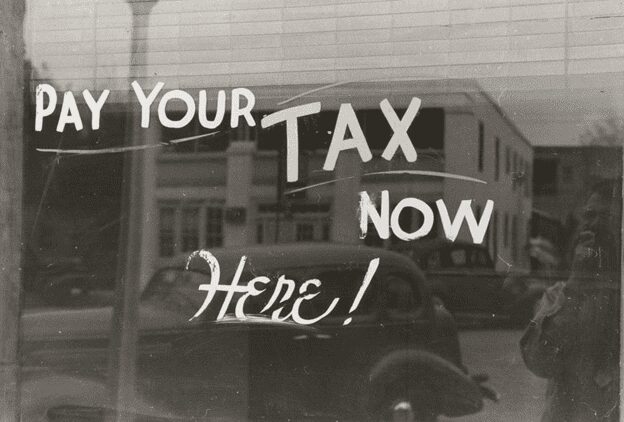Have you accumulated hefty tax debts, and you are sure that the IRS has correctly determined the amount of debt you owe? Are your total income and assets less than the amount you owe?
Will paying your debts put you in a situation where you will experience undue financial hardship? Then it would help if you considered an offer in compromise (OIC) as a way to clear your tax debts. In an OIC agreement, you can settle your debt for less than the amount that you owe in taxes. To know more about the OIC agreement, you can visit www.taxgroupcenter.com.
How an OIC works 
Say you owe the IRS $20,000 in tax debt, which you cannot afford to pay. You can make an offer to them to pay, say, $10,000 if you can forego the remaining amount, and be cleared of your debt entirely. Once you send your offer to the IRS, they will look into your income, assets, and expenses and determine if you qualify for the offer. If you are lucky, you get to pay your offer amount and clear your debt.
If the amount you have offered to pay represents the most that the IRS can expect to collect within a specific period, then you can qualify for an OIC.
Other factors that make you a suitable candidate for an IOC
Other signs that you may qualify for an IOC are if you are a retiree who has a fixed monthly or annual income and you fall in the federal low-income bracket. The IRS may also accept your offer if you are already in trouble with them because they like to avoid lawsuits.
Issues that will automatically disqualify you from getting an OIC

If you have filed a new OIC without filing the required tax returns or making the payment estimates necessary, your offer will not go through.
You will also be disqualified if you have bankruptcy proceedings. Another reason why you face disqualification is when you are self-employed, and you have employees for whom you have not submitted federal tax deposits.
Offer rejection
The IRS could reject your OIC when they determine that the amount that they could collect from you is much less than what you have offered. You may be wondering how the tax collection body determines your paying capabilities—here is how:
The IRS defines your paying power based on your current income and the necessary living expenses that you incur. For example, if you live in a city where the lowest average living expenses are $1,942, but your actual costs are $3,550, the IRS may only deduct the $1,942 from your income to determine your power to pay. In such a case, your OIC will not go through. Sometimes, the IRS can also err in their calculations and reject your offer.
Once the IRS rejects your offer, you can appeal the IRS decision within 30 days from the day they rejected it. You have to come up with a particular reason for your appeal. Some of the valid reasons that can pass for an appeal include:
- When you are in disagreement with the amounts which the IRS has determined as your income.
- When the allowed expenses are not what they should be by your calculations.
- When the IRS has wrongfully valued your assets.
- You are dealing with a particular circumstance that will require your offer in acceptance to be upheld.
While presenting your valid reasons for an appeal, it is essential to attach all the supporting documentation you can get. An IRS appeals officer will handle your case and give it a new review. It helps to carry along a qualified and experienced attorney to help you register a win because the decision of the IRS appeals is final.
If the IRS appeals do not give your offer in acceptance the go-ahead, you can submit another OIC while putting into consideration the IRS calculations and recommendations about your ability to pay. Alternatively, you can consider other methods of tax resolution.
Two payment options

There are two ways that you can pay for your OIC. The payment options include giving lump-sum cash or making periodic payments. If you choose to pay in a lump sum, you have to submit an initial amount of 20% of the amount you have offered with your application. You will then wait for the IRS to respond to your offer. If they accept your offer, you will be liable to pay the remaining amount in five payments or less.
If you choose the periodic mode of payment, you will also pay the initial amount of cash together with your application. You will continue to pay the regular fees as you wait for the IRS to consider your use. If they accept your request, you will continue to make the payments monthly until you are done.
What happens when your offer is under evaluation?
While your offer is under evaluation, the IRS will suspend all other debt collection activities and extend the period for legal assessment and collection of debt. You are also not required to make payments on a general installment agreement, and the IRS will include your non-refundable fees for the application of the OIC in your tax liability.
What if the IRS fails to determine your eligibility?

Your offer is automatically accepted if the IRS fails to determine your eligibility for an OIC within two years from your application.
The OIC acceptance rate
The acceptance rate for OIC by the IRS is less than 50%. In 2017, the IRS accepted 25,000 of the 62,000 proposed offers. Not many people know about the OIC tool, which can be very useful in helping you clear your debt obligation and avoid accumulating more debt. You can check your eligibility for an OIC by using the IRS pre-qualifier tool.
Note, however, that even if the IRS pre-qualifier determines that you are qualified, that does not guarantee that the IRS will approve your offer. The IRS requires you to ‘explore all other options’ before you settle for an OIC.










